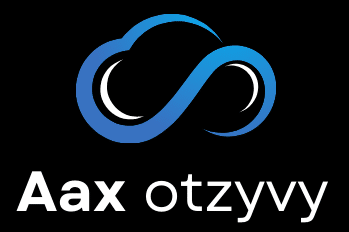
How can UK-based publishers use AI to automate content moderation?
In the increasingly digital landscape, UK-based publishers face the challenge of managing and moderating vast amounts of user-generated content (UGC). This content comes in various forms, including text, images, and videos. Manual moderation is often time-consuming and resource-intensive. The advent of artificial intelligence (AI) offers innovative solutions that can significantly ease this burden. This article explores how AI tools can be leveraged to automate content moderation, ensuring a safer online environment while maintaining the quality and integrity of digital publishing.
The Importance of Content Moderation for Publishers
In the digital age, the publishing industry has undergone significant transformation. With the rise of social media platforms and the increased presence of user-generated content, maintaining a respectful and trustworthy environment has become paramount. Content moderation involves monitoring and managing this content to ensure it adheres to community guidelines and legal standards. For UK-based publishers, this task is particularly crucial due to stringent regulatory frameworks governing online safety and hate speech.
A lire en complément : How to develop a mobile app that integrates AI for personalized healthcare advice in the UK?
Traditional content moderation relies heavily on human moderators, who manually review and approve content. While this approach is effective, it is also labor-intensive and not scalable. The sheer volume of UGC makes it impractical to rely solely on human intervention. Here, AI-powered tools come into play, offering a more efficient and scalable solution for content moderation.
How AI Enhances Content Moderation
AI technologies, including machine learning and natural language processing, have made significant strides in recent years. These advancements enable AI systems to understand and process large amounts of data in real-time, making them ideal for content moderation. AI can quickly identify inappropriate or harmful content, such as hate speech or graphic imagery, and flag it for further review or automatic removal.
Lire également : What are the most effective strategies for using data analytics to optimize marketing budgets for UK tech companies?
For UK-based publishers, utilizing AI for content moderation offers several benefits:
- Speed and Efficiency: AI can process and moderate content faster than human moderators, allowing for real-time intervention.
- Scalability: AI systems can handle vast amounts of content, making them suitable for large publishers with extensive user bases.
- Consistency: Unlike human moderators, AI ensures consistent application of moderation guidelines, reducing the risk of bias.
- Cost-Effectiveness: Automating content moderation can significantly reduce operational costs associated with hiring and training human moderators.
Implementing AI-Powered Moderation Tools
Transitioning to AI-powered moderation involves integrating various technologies designed to analyze and filter content. Here are key steps for UK-based publishers looking to implement AI for content moderation:
- Identify Moderation Needs: Assess the specific needs of your platform, including the types of content that require moderation (e.g., text, images, videos).
- Choose the Right Tools: Select appropriate AI tools that align with your moderation requirements. Popular options include Google’s Perspective API, which analyzes and scores text based on its potential to be perceived as toxic, and Microsoft’s Content Moderator, which uses machine learning to tag potentially inappropriate content.
- Integrate AI with Existing Systems: Ensure that the chosen AI tools can seamlessly integrate with your current content management systems (CMS). This may involve customizing APIs or developing bespoke solutions.
- Train AI Models: Initially, AI models require training with relevant data to improve their accuracy. This involves feeding the system with examples of acceptable and unacceptable content.
- Monitor and Adjust: Continuously monitor the performance of AI-powered moderation tools and make necessary adjustments. This may include retraining models or updating moderation guidelines.
Challenges and Limitations of AI in Content Moderation
While AI offers significant advantages for content moderation, it is not without its challenges and limitations. UK-based publishers must be aware of these potential issues to effectively leverage AI:
- Accuracy: AI systems are not infallible and may incorrectly flag or overlook content. This can lead to false positives (legitimate content being flagged) or false negatives (harmful content being missed).
- Context Understanding: AI may struggle with understanding the context in which certain phrases or images are used. For example, sarcasm or cultural nuances can be challenging for AI to interpret accurately.
- Bias: AI models can inherit biases present in the training data, leading to unfair or discriminatory moderation decisions.
- Privacy Concerns: Implementing AI for content moderation involves processing large amounts of user data, raising privacy and data protection issues. Compliance with regulations such as the General Data Protection Regulation (GDPR) is crucial.
- Dependence on Human Moderators: Despite automation, there remains a need for human moderators to review contentious cases and provide oversight.
To mitigate these challenges, it is essential for publishers to adopt a hybrid approach that combines AI and human expertise. This ensures a balance between efficiency and accuracy, leveraging the strengths of both AI and human moderators.
The Future of Digital Publishing and Content Moderation
The future of digital publishing will undoubtedly see a greater reliance on AI for content moderation. As technology advances, AI systems will become more sophisticated and capable of handling complex moderation tasks with higher accuracy. UK-based publishers can look forward to the development of AI tools with improved contextual understanding and reduced bias.
Moreover, the integration of natural language processing and other advanced technologies will enhance the ability of AI to process and analyze content in multiple languages, including English. This will be particularly beneficial for publishers with a diverse audience base.
In addition, the rise of real-time content moderation tools will enable publishers to intervene instantaneously, preventing the spread of harmful content. This is crucial in maintaining a safe and respectful online environment, especially in the context of rapidly evolving social media trends.
UK-based publishers can significantly benefit from utilizing AI to automate content moderation. By leveraging AI technologies, publishers can enhance the speed, efficiency, and consistency of their moderation efforts. However, it is important to be aware of the challenges and limitations of AI and to adopt a balanced approach that includes both AI and human expertise.
The future of content moderation in digital publishing looks promising, with advancements in AI poised to offer even greater capabilities. As publishers continue to navigate the digital landscape, the adoption of AI-powered moderation tools will be essential in ensuring a safe and engaging environment for users.
In summary, AI holds tremendous potential for transforming content moderation, enabling publishers to manage user-generated content effectively while maintaining the quality and trustworthiness of their platforms. By embracing this technology, UK-based publishers can not only streamline their operations but also contribute to a safer and more inclusive online community.
